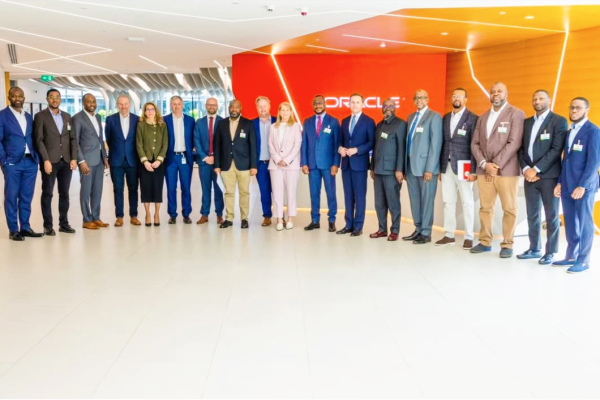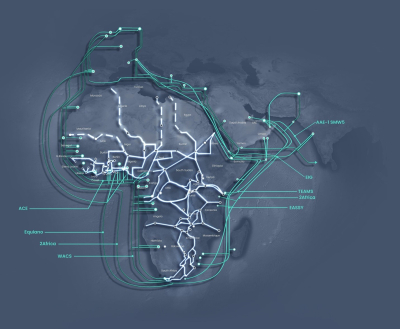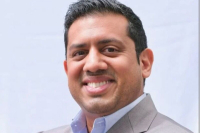A finance graduate, he brings significant experience in mergers and acquisitions from major companies in France and Morocco. Currently, he is using digital technologies to streamline business management.
Anas Laghezali (photo), a Moroccan finance expert and serial entrepreneur, is the chief executive officer of Lacaisse.ma, a connected point-of-sale (POS) solution established in 2016.
Lacaisse.ma offers an integrated platform designed to simplify business management. Its features include optimized inventory management, precise stocktaking capabilities, and real-time updates of technical data sheets. The solution also streamlines the creation of quotes and professional invoices through an intuitive interface, enhancing the efficiency of business transactions.
By integrating with delivery platforms, Lacaisse.ma enables merchants to effectively manage their online sales. Its numerous functionalities provide a comprehensive overview of business activity, accessible anytime on various devices – computers, tablets, or smartphones – whether on-site or remotely.
Currently, Laghezali is part of the "Mergers, Acquisitions, and Partnerships" department at OCP SA, a global leader in plant nutrition solutions and sustainable soil management. Prior to launching Lacaisse.ma, he co-founded Sam, a carpooling start-up, in 2015 and served as its CEO until 2017.
Laghezali began his professional career in 2012 as a mergers and acquisitions analyst at Société Générale Corporate and Investment Banking in France. In 2014, he joined Crédit Agricole CIB in the same capacity. Subsequently, in 2017, he joined the Moroccan investment bank Burj Capital as an associate in M&A and private equity.
By Melchior Koba,
Editing by Sèna D. B. de Sodji
- The Zamfara State government partners with Oracle to enhance digital proficiency among youth and professionals.
- The program, led by ZITDA, Oracle Academy, and Oracle University, includes free access to courses and certifications in cloud computing, AI, data science, and APEX development.
The government of Zamfara State in Nigeria has entered into an agreement with Oracle to advance the digital proficiency of its youth and professionals, marking a key step in the state's digital transformation strategy.
The partnership will be executed through the Zamfara Information Technology Development Agency (ZITDA), in collaboration with Oracle Academy and Oracle University. It encompasses complimentary access to online courses, professional certifications, and over 200 hours of instruction in critical fields such as cloud computing, artificial intelligence, data science, and APEX development.
"What we are undertaking today transcends mere technology – it is about instilling hope, generating opportunities, and unlocking the future," stated Dauda Lawal, the Governor of Zamfara State. "By investing in digital education and innovation, we are providing tangible alternatives to poverty, unemployment, and despair."
Through this focus on training, the Zamfara government aims not only to empower its citizens to engage in the digital economy but also to cultivate a proficient workforce. Highlighting the significance of this initiative, the World Bank projects that approximately 230 million jobs in Sub-Saharan Africa will demand digital skills by the year 2030.
By Isaac K. Kassouwi,
Editing by Sèna D. B. de Sodji
Bayobab’s continued investments in fibre infrastructure reflect its mission to power Africa’s digital economy by connecting people, businesses, and markets across the continent. The new Kampala–Malaba link positions Uganda as a hub in the East African digital ecosystem, opening new opportunities for cloud service providers, hyperscalers, and enterprise customers.
On May 6, Bayobab Uganda, a subsidiary of MTN Group, announced the successful launch of its newest and shortest fibre optic route: the Uganda Railway National Long Distance (NLD) connection from Malaba to Kampala.
Speaking at the unveiling in Kampala, Bayobab Uganda Managing Director Juliet Nsubuga emphasised the importance of this project in accelerating Uganda’s digital transformation. She noted that by partnering with the Uganda Railway to deploy fibre along the existing rail infrastructure, Bayobab is bringing reliable, high-speed internet to communities along the route and reinforcing regional interconnectivity.
Spanning 260 kilometres from Kampala through Tororo to Malaba at the Kenya border, the route forms a critical part of the regional digital backbone, connecting directly to Bayobab’s subsea cable landing stations in Mombasa, Kenya. Constructed between December 2024 and February 2025, this route completes a seamless digital corridor from Kampala to the coast, following the recent launch of the Mombasa–Malaba/Busia fibre link in Kenya.
Supporting over one terabyte of capacity, the route offers high-speed, low-latency connectivity to major data centres in Kampala, including Raxio, Airtel House, and MTN Uganda. It is expected to significantly enhance service delivery for telecoms, ISPs, and global tech firms operating in the region.
This new route complements existing MTN fibre infrastructure across multiple corridors, including Busia–Jinja–Kampala and Malaba–Lira–Masindi–Kampala, offering network redundancy and increased reliability. It is a vital addition for Uganda, a landlocked country whose international internet access relies on robust cross-border connectivity.
Julianne Mweheire, Director of Industry Affairs and Content Development at the Uganda Communications Commission, welcomed the milestone, noting its alignment with Uganda’s national agenda to expand digital services and bridge the rural-urban connectivity gap. She said the new route enhances network resilience and provides valuable redundancy for Uganda’s digital infrastructure.
Bayobab serves telecom operators, ISPs, cloud providers, hyperscalers, and enterprise clients, and the new Malaba–Kampala fibre route significantly strengthens its service offering. By delivering faster service through reduced latency, improved reliability via route diversity, and cost efficiency as a shorter and less congested alternative to existing paths, the route directly addresses key industry demands. These advantages enhance Bayobab’s competitiveness, positioning it as a preferred partner in East Africa’s connectivity ecosystem and enabling it to capture a larger share of clients. With its existing 114,000km of fibre infrastructure, it plans to expand to 135,000km by 2025 as part of its business strategy.
Hikmatu Bilali
- Orange Mobile Finance Sierra Leone (OMFSL) introduced a digital microcredit service for Orange Money users, providing instant loans via mobile shortcodes.
- The service targets small merchants and agents, offering quick access to working capital without traditional loan complexities, as part of Orange's strategy to expand financial inclusion in West Africa.
Orange Mobile Finance Sierra Leone (OMFSL) introduced "Kwik Moni Loan" on Thursday, May 8, a digital microcredit service targeting agents and merchants who utilize Orange Money. The new financial product offers users immediate loan access through their Orange Money mobile wallets by dialing the shortcodes #145# for agents and #146# for merchants.
David Mansaray, CEO of OMFSL, stated that the 24/7 service provides swift and convenient access to working capital for a range of professionals, including shopkeepers, taxi drivers, and store owners. The initiative seeks to facilitate business growth without the complexities of traditional loan processes.
The launch of "Kwik Moni Loan" aligns with Orange's wider strategy to enhance financial inclusion in West Africa. In 2020, Orange previously launched "Orange Money Lajor" in Sierra Leone, a microcredit service for Orange Money customers in collaboration with Empire Solution. Additionally, Orange Bank Africa, the group's digital banking arm, was established in Côte d'Ivoire in 2020 to provide savings and credit services accessible via mobile, with plans for regional expansion.
Through this latest initiative, Orange Mobile Finance Sierra Leone aims to bolster financial inclusion by enabling quick credit access for small merchants and local agents. By offering solutions tailored to their specific needs, the service intends to support entrepreneurship, improve the financial stability of unbanked populations, and stimulate commercial activity nationwide.
By Samira Njoya,
Editing by Sèna D. B. de Sodji
His aim is to break down the barriers to language learning. By using technology, he intends to make the process more interactive, engaging, and most importantly, more effective.
Algerian content creator and entrepreneur Younes Aithamou (photo) is the founder and chief executive officer of Fluently, an online language learning platform launched in 2024.
Aithamou's goal with Fluently is to revolutionize language education by making it more appealing, accessible, and aligned with contemporary digital trends. The platform utilizes technology to deliver customized learning experiences designed to meet the individual needs and goals of each user.
Fluently's lessons are immersive, integrating language acquisition with realistic scenarios. To enhance engagement, the platform incorporates interactive quizzes, games, and gamified activities. It monitors each learner's progress and provides access to a private community of instructors.
Currently, Fluently features over 1,000 quizzes and serves more than 1,000 students, facilitating the learning of more than six languages, including French, English, Spanish, and German.
Beyond Fluently, Aithamou is a brand ambassador for Samsung Electronics and the creator of "Fluently Talk," the official podcast of his educational platform. The podcast features inspiring narratives, expert insights, and practical guidance for both language learners and entrepreneurs.
Since 2022, Aithamou has also been active as a content creator on Instagram. He holds the position of content marketing director at Litmad, a company specializing in the production of foam for mattresses, pillows, and other sleep and wellness products. Additionally, Aithamou collaborates as an influencer with the creative communication agency The Crew Algeria.
Aithamou, who joined the University of Algiers in 2023, is currently pursuing studies in dentistry.
By Melchior Koba,
Editing by Sèna D. B. de Sodji
- Algeria's ENIE plans to produce 2 million tablets in 2025 to equip 8,800 educational institutions
- The initiative aims to reduce schoolbag weight and enhance education quality through digital tools.
- ENIE has not announced when production will start, raising concerns about meeting the September 2025 deadline.
Algeria's National Electronic Industries Company (ENIE) aims to manufacture two million electronic tablets in 2025 for distribution to 8,800 educational institutions, the company's Chief Executive Officer Mohamed Abbes Bourassi announced on Wednesday. Speaking to the Algeria Press Service (APS) during the reopening of ENIE's showroom in Algiers, Bourassi detailed the ambitious production target.
This initiative is anticipated to bolster the government's goal of expanding the use of information and communication technologies within the national education system. The government has outlined plans to equip half of the country's primary schools with electronic tablets for the upcoming academic year. These devices are envisioned for use in school administration and are also expected to streamline access to online educational materials, research, learning tools, and communication channels for both students and educators.
In remarks carried by APS, Minister of National Education Mohammed Seghir Sadaoui stated that the project intends to "reduce the weight of students' schoolbags, but more importantly, to enhance schooling conditions and the quality of education, aligning them with digital advancements." The Algerian government's ultimate vision is to transform Algerian schools into a benchmark for modernization and innovation through the integration of digital tools. To this end, digital platforms have been implemented for various stakeholders, including teachers and parents, skills assessment, and appointment scheduling for diploma verification.
ENIE has yet to release a precise schedule for the commencement of electronic tablet production. This lack of a specific timeline raises concerns regarding the company's capacity to deliver the devices by the start of the September 2025 school year, in accordance with the government's stated commitments.
By Isaac K. Kassouwi,
Editing by Sèna D. B. de Sodji
In an African continent where logistical efficiency and inventory management remain significant hurdles, this Nigerian startup seeks to offer a tailored technological solution.
RetailLoop, a Nigerian startup's e-commerce solution, offers an integrated platform for retail chains, incorporating artificial intelligence, data analytics, inventory management, and operations automation. Founded in 2022 by Emeka Ehinze with the goal of transforming retail network management in Africa, the startup operates from bases in Austin, Texas, and Lagos, Nigeria.
Specifically, RetailLoop enables retailers to monitor their stores' performance in real time, automate restocking processes, and optimize distribution based on local demand. The platform aims to enhance product availability while lowering operational expenses.
The solution is accessible via an online platform, requiring users to create an account to use its features, as it does not offer a mobile application. Its software-as-a-service (SaaS) model allows it to cater to both large retail chains and expanding regional operators. RetailLoop claims to potentially reduce losses from stockouts by up to 30% and improve profitability through data-driven insights.
Having gained traction with several retailers in Nigeria, RetailLoop is now seeking to expand its presence into other African markets. Amidst the rapid digital transformation occurring across Africa, the startup joins a growing number of African ventures leveraging technology to structure and professionalize the retail sector. By addressing the complexities of managing multiple store locations, RetailLoop positions itself as a significant contributor to logistics optimization on the continent.
By Adoni Conrad Quenum,
Editing by Feriol Bewa
- Google will implement an 18% VAT on all digital services in Senegal starting June 1, 2025, following the country's new digital tax regime introduced in July 2024.
- Professional clients must provide local tax information (NINEA or commercial register number) for compliant invoicing.
Starting June 1, 2025, Google will levy an 18% value-added tax (VAT) on all its digital services for users based in Senegal, signaling a significant step in the Senegalese government's push for digital taxation.
The U.S. tech giant will now require its business clients in Senegal to provide their local tax identification details, specifically the national identification number for businesses and associations (NINEA) or the commercial register number. This information will be used to generate invoices compliant with Senegal's General Tax Code. The VAT will apply across Google's digital service portfolio, including Google Ads, Google Cloud, software subscriptions, and streaming platforms.
This move follows the implementation in July 2024 of a new tax framework that mandates VAT on digital services provided by foreign companies without a physical presence in Senegal. To date, few multinational digital firms have officially complied. Google's adherence to this regulation positions it as one of the first major industry players to do so, potentially setting a precedent for others that have yet to follow suit.
According to Senegal's Directorate General of Taxes and Domains (DGID), the digital VAT has already generated over 1 billion FCFA (approximately $1.7 million) in its initial year. The government's medium-term objective is to increase these revenues to 10 billion FCFA as part of its broader strategy to modernize its tax system and broaden the digital tax base.
Google's compliance, as a global leader in digital services, is therefore considered a pivotal development for the success of this tax reform. It is anticipated to not only increase tax revenues for Senegal but also to foster greater parity between local businesses and multinational corporations operating online.
By Samira Njoya,
Editing by Sèna D. B. de Sodji
A seasoned technology executive and entrepreneur, his venture RecoMed aims to improve healthcare access across Africa, with a specific focus on South Africa.
South African tech entrepreneur and business executive Sheraan Amod (photo) is the founder and chief executive officer of RecoMed, an online platform for booking medical appointments.
Launched in 2013, RecoMed provides a seamless connection between patients, healthcare practitioners, and other stakeholders in the healthcare industry. The platform allows patients to conveniently schedule medical consultations privately via their computers or mobile phones, offering access to a broad network of nearby healthcare providers.
RecoMed also connects healthcare providers with a diverse array of medical schemes, life insurers, websites, and other channels, thereby facilitating increased patient flow to their practices. Additionally, RecoMed enables patients to obtain and download prescriptions and locate the closest pharmacy.
The platform currently records over 100,000 bookings each month and attracts more than 200,000 monthly visitors. It boasts a network of over 3,000 registered and available practitioners.
Concurrently, Amod serves as the chairman of The Virtual Agent, a company that provides a data and client relationship management tool tailored for real estate agents in South Africa. His involvement with RecoMed builds upon a substantial prior entrepreneurial track record.
In 2004, he established Trafik Students Network, a marketing startup. Following this, in 2009, he launched Personera, a software platform integrating social media to promote personalized products and fan merchandise. In 2013, he founded Springlab, a technology company and investment firm.
Amod earned a bachelor's degree in computer science and electrical engineering from the University of Cape Town in 2007. He further obtained a master's degree in engineering management from Stellenbosch University in 2008. Between 2007 and 2009, he worked as a social media expert at DiploFoundation, an organization focused on international relations and diplomacy. From 2017 to 2020, he chaired En-novate, an immersion platform dedicated to fostering innovation.
He was honored with the Frost & Sullivan Innovation Award in 2017. In 2021, his startup RecoMed was recognized by the Yale Africa Startup Review as one of the 30 most innovative young companies in Africa.
By Melchior Koba,
Editing by Sèna D. B. de Sodji
An entrepreneur active in various ventures across Southern Africa, he aims to enhance the quality of road transport services via his platform, myRunner.
Zimbabwean entrepreneur Vusumuzi Mkhwananzi (pictured) is the co-founder and chief executive officer of myRunner, a tech firm focused on simplifying and enhancing the safety of bus travel.
Established in 2017 by Mkhwananzi, Josiah Mahachi, Millcent Mkhwananzi, Gift Chirinda, and Mandla Ncube, myRunner operates as a ticketing platform enabling users to book bus journeys across South Africa, Zimbabwe, and several other African nations at any time. The platform incorporates advanced features such as real-time bus tracking and fleet management tools for operators.
The startup also aims to streamline cross-border and domestic transport for small and medium-sized enterprises, providing a range of services including an electronic wallet, online marketplace, transport and freight brokerage, grocery delivery, and digital services. Additionally, it assists businesses in more effectively managing their online commercial activities.
Beyond his entrepreneurial ventures, Mkhwananzi serves on the board of directors for the Brussels-based operational center of Médecins Sans Frontières (Doctors Without Borders). Prior to launching myRunner, he co-founded Global Simcards International in 2012, a company specializing in business development and operational management, where he held a board position until 2024.
Mkhwananzi earned a master's degree in business administration from the Catholic University of the Sacred Heart in Italy in 2020.
myRunner garnered recognition as the top startup in Zimbabwe at Seedstars Harare in 2017. The company received the Total Startupper of the Year award in 2018 and was nominated to represent Zimbabwe at the Southern Africa Startup Awards. In 2024, myRunner was among 42 African startups selected to join the inaugural cohort of the Timbuktoo Fintech Hub, a collaborative initiative between African countries and the United Nations Development Programme.
By Melchior Koba,
Editing by Sèna D. B. de Sodji
More...
- Galaxy Backbone seeks collaboration with Nigeria Customs Service (NCS) to support digital transformation, focusing on secure cloud storage, data protection, and high-speed connectivity.
- No agreement signed yet but further developments expected as discussions continue.
Galaxy Backbone is continuing its push to broaden its clientele among Nigerian federal entities. The state-owned technology firm recently engaged with the Nigeria Customs Service (NCS) in Abuja to discuss potential technological collaborations as part of the customs agency's ongoing digital overhaul.
"We understand that Customs is undergoing a significant transformation with the Trade Modernization Project (TMP). As the Federal Government's ICT backbone, we are here to explore how our proficiency in cloud storage, secure connectivity, data backup, and cybersecurity can bolster your evolving operational requirements," stated Ifeatu Anafulu, Marketing and Business Intelligence Manager at Galaxy Backbone.
This outreach aligns with Galaxy Backbone's objective to serve as the primary provider of shared ICT infrastructure, applications, and services for all ministries and federal government institutions amid an accelerating digital transformation landscape. For instance, in November 2024, the company inked a deal to fortify the digital infrastructure of Bauchi State. Prior to that, in July 2024, it had pledged its support for the digital transformation of Enugu State. Galaxy Backbone was also tasked with connecting local government secretariats to the internet.
Should this potential collaboration come to fruition, Galaxy Backbone's support could expedite the Nigerian Customs' digital transformation journey. Abdullahi Maiwada, Assistant Customs Controller, affirmed that "partnerships with organizations such as Galaxy Backbone are crucial to ensure the reliability, scalability, and security of Customs' digital infrastructure." He also voiced optimism regarding potential collaboration, particularly in areas like secure data storage, platform hosting, and high-speed connectivity for the Nigeria Customs Broadcasting Network (NCBN).
As of now, no formal agreement has been signed or announced by either party. Further developments will be necessary to gain a clearer understanding of the prospects and potential ramifications of this engagement.
By Isaac K. Kassouwi,
Editing by Sèna D. B. de Sodji
Nigerian preventive healthcare startup Platos Health announced on May 7 that it has raised $1.4 million in pre-seed financing. The round included backing from Google for Startups, Invest International, and notable angel investors affiliated with Google, Tesla, and Unicredit.
This funding milestone underscores Platos Health’s growing credibility and ambition to reimagine health systems by focusing on early intervention and holistic risk reduction, rather than reactive treatment.
The company is scaling nationwide through 300+ pharmacy partners and preparing for global expansion into emerging markets.
Ms. Geek Africa, an initiative under the Girls in ICT Rwanda, supported by Smart Africa and other partners, is inviting girls aged 13 to 21 from Smart Africa member states to submit innovative, AI-powered solutions under the theme “AI for Africa: Innovate Locally, Impact Globally.” The competition aims to empower young African women to tackle pressing local and continental challenges through technology.
Applicants must submit a written concept of no more than 500 words outlining the problem they aim to solve, how their solution uses Artificial Intelligence, a simple conceptual design or drawing to illustrate how it works, and a clear explanation of how it could be implemented or scaled. Submissions can be an idea, a prototype, or a working product, and must be original or represent a meaningful innovation on an existing solution.
The deadline to submit entries is May 16, 2025. Finalists will receive high-level exposure, prizes, and access to mentorship opportunities.
A marketing expert by trade, he leverages his skills to support businesses. With a passion for both music and technology, he also developed a platform designed to give artists international visibility.
Congolese marketing specialist and renowned trainer, Gracy Omokoso (photo) is the Chairman and CEO of Streameex, a streaming platform dedicated to live broadcasting of concerts and events in Africa.
Launched in 2021, Streameex aims to bring African artists closer to their audiences through a high-quality streaming experience. The platform also provides event organizers with powerful tools to achieve their goals, enhance their impact, and offer the public unforgettable moments.
Streameex is an initiative of Go Freelance, a communication and digital marketing consulting agency co-founded by Gracy Omokoso. This platform was born from the desire to allow artists to showcase their art on a global scale while offering music lovers an immersive and engaging experience.
Gracy Omokoso graduated from the National Pedagogical University of the Democratic Republic of the Congo, where he earned a bachelor's degree in marketing in 2015. That same year, he began his professional career at AG Partners, a communication agency, as an advertising manager and digital officer. From 2021 to 2024, he worked as a digital marketing coach at Kadea Academy. Since 2024, he has been working as an independent consultant in this field.
By Melchior Koba,
Editing by Sèna D. B. de Sodji















